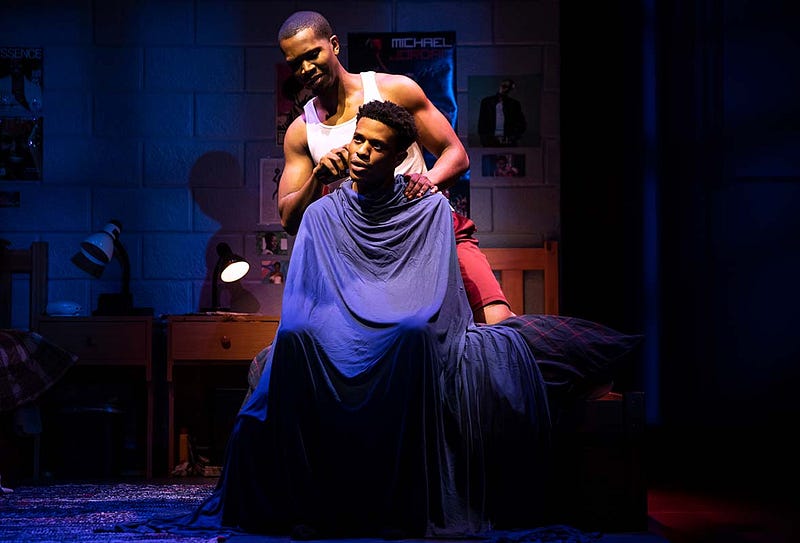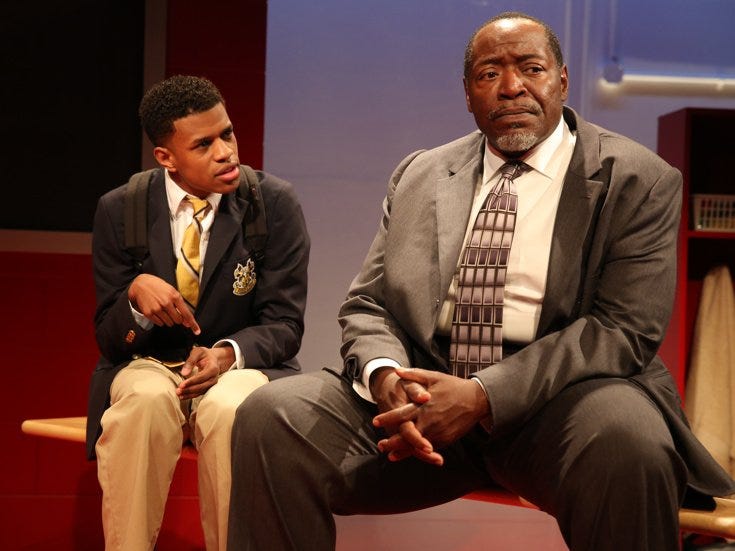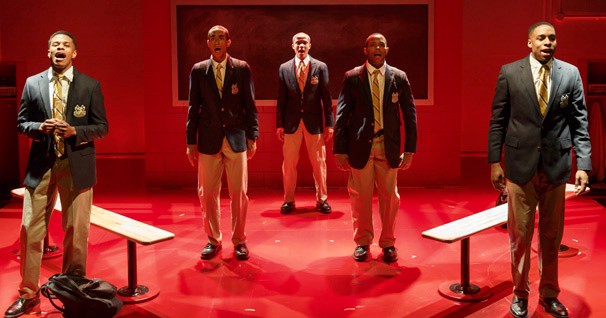Broadway has always been a queer place, but with “Head Over Heels,” “The Prom,” “Boys in the Band,” “Straight White Men,” “The Nap,” Torch Song” (and “The Cher Show” if you count the audience) this has been an exceptionally queer season. We’ve had gays, lesbians, bisexuals, transpeople, drag queens, and a non-binary character. Quite literally the LGBTQ spectrum has been represented in the plays and musical of the season.
The latest addition to this beautifully queer season is Manhattan Theatre Club’s new production, “Choir Boy” by Tarell Alvin McCraney playing at the Friedman Theatre. The play tells the story of a group of boys in an a capella choir at an all black, all boys private school and centers on Pharus, the token gay kid. On the surface, it is just another high school drama about bullying and drama over who gets to be the choir lead; though the play may build on some cliches, it is a story that Broadway has not seen before.

The play expertly explores the intersectional nuances of race, class, sexuality, and spirituality. It is rather unique to get such powerful discussion about privilege within a seemingly monolithic community of black boys in matching blazers. Under the preppy uniforms certain students deal with the stigma of being on scholarship, distant families, struggles with sexuality, and various interpretations of manhood, religion, and education. Every character has a unique set of issues, they are all dealing with their own baggage — never are they mere stereotypes or stock characters.
The young cast brings this complicated world to life. Jeremy Pope perfectly balances Pharus’ identity as a swish, his love for choir, and his desire to just survive high school. Rounding out the cast are John Clay III, who plays Pharus’ roommate Anthony with a touching sensitivity, J. Quinton Johnson who plays the homophobic bully Bobby with a sinister sneer, Caleb Eberhardt as the to-be pastor boy David, and Chuck Cooper as the overwhelmed Headmaster Marrow, lost among the endless problems of his students. The ensemble works together in incredibly smooth ways, often operating as a single organism, bringing the unity of their choir singing into each and every non-musical scene.

As if the writing and acting were not strong enough, the choreography by Camille A. Brown and vocal arrangements by Jason Michael Webb make this perhaps one of the best plays with music on Broadway ever. Far from your standard idea of a capella from college competition or “Pitch Perfect,” here they choir is heavily influenced by black gospel and spirituals, while the choreography is entirely percussive hip hop. These amazing choices make the choir feel perfectly at home within the world of the play. This is not another replica mostly-white pop-influenced a capella group, but a clear representative of black culture’s relationship to music and dance.
Sadly, the design of the piece is somewhat weak, especially and disappointingly the sets by David Zinn. But overall, director Trip Cullman combines all the elements of writing, acting, and design to create a play that is equally powerful and emotionally moving. The pacing is perfect and poignant — the plays runs about 95 minutes no intermission — with the important moments punctuated with expertise. Playwright McCraney often uses music in the way a musical does, to heighten emotion and express the feeling of a scene, but even more haunting is the Cullman’s strategic use of silence: he makes us sit in the uncomfortable and the painful in ways that are remarkably evocative.
Part of what makes “Choir Boy” such an effective piece is that is it so clearly and authentically a piece of black art that speaks to many complex black experiences. Broadway needs more art like this: passionately queer, boldly intersectional, and definitively extraordinary in almost all aspects.






